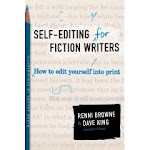Sunday, April 24, 2011
MANY VOICES, ONE VOICE
A few years ago, when I read John's description of the risen Christ from the isle of Patmos, the description of Jesus' voice as "many waters" struck me. So that's why there are so many different writers and denominations. It takes every single one of us to show the world who Jesus is.
(Caveat: I'm not saying that is the only or the best interpretation of the verse.)
Our pastor's sermon on Easter Sunday touched on the same theme. One body, the church, with many different parts. He mentioned that so often Christians equate unity with conformity and we're not always comfortable with our differences.
This year I am again judging books for the "Carol" awards for published books. One of the books I've read isn't my kind of story at all. I have to work hard to set aside my personal prejudices to judge the book fairly. My critique partner (Susan Page Davis) and I frequently praise God for our differences. Wouldn't it be boring if we all wanted to write the same thing?
Today I'm not discussing the discovery or development of our unique writing voices. I am simply celebrating their existence. Consider what the following taglines reveal about the authors:
History, Mystery, Romance...and Hope - Carolyn Scheidies
Seatbelt Suspense - Brandilyn Collins
Southern-fried Fiction - Ane Mulligan
Spiritual Truth...With a Giggle - Kathy Kovach
Words of hope to strengthen your Biblical worldview - Casey Heringshaw
Writing at the Crossroads of Love and Grace - me!
Who are the some of the voices in Christian fiction who have revealed Christ to you in new ways? Share your favorite authors--and why they speak to you.
Monday, April 18, 2011
The Agony of Defeat
- Give Yourself Time to Grieve. It’s normal to feel let down or even angry when we door poorly in a contest. Let those feelings out, find a sympathetic friend, talk about how ignorant the judges are (even when you know they were right!) and cry a few tears
- Put Away the Comments for a Few Days. Give yourself permission for a little breathing room. After you've read through the comments, put the file away and don’t open it again for at least a week. By then the edge will dull and you’ll be able to see what you need without feeling like a total failure.
- Understand that the Writing Business is Subjective. One of the reasons this business is so hard on the emotions is because there is rarely a definitive answer. What one editor loves, another rejects as unusable. The same is true with judging. One judge may praise a clever turn of phrase while another claims it’s outdated and clunky.
- Don’t EVER Measure Your Worth by How you do in Contests. There are lots of ways to measure your progress as a writer—contests are NOT one of them!
Sunday, April 10, 2011
8 REASONS TO JOIN ACFW
The Oklahoma City Christian Fiction Writers (OCFW) chapter of American Christian Fiction Writers (ACFW) has been in existence for three years. We've had four Genesis contest finalists/semifinalists, three Carol award finalists, and one multiple-Rita finalist. Two of our authors have received first-time contracts. I think that's pretty amazing for a baby organization.
If you write Christian fiction, you might wonder why you should join ACFW. I put it off for several years myself. I'd been writing for a long time, long before ACFW or even RCFW ever existed. ACFW began to make noise shortly before I received my first contract (late 2003). I figured, why bother? I had already "made" it, so to speak.
If the success of Oklahoma City's small slice of ACFW isn't enough to inspire you, here are a few reasons to join:
- Learn the craft. In addition to the annual conference, there are classes, magazines, a loop where questions about the writing craft are discussed on a daily basis. Today's writer gets a speed course in what took me a decade to learn.
- Fellowship. Support each other through prayer. My daughter's death three years ago echoed through ACFW. I have never felt so much love and support.
- Find critique partners. Whether you take part in the structured critique groups or connect with one or two individuals, you can find that person who will cheer you on to success.
- Find special interest groups. Join a group for everything from international suspense to speculative to 19th century romance.
- Network nationally. Rub elbows with some of the best in the business, both writers and editors.
- Market more effectively. Learn about current trends, opportunities, and the all-important "how to."
- Gain exposure. Whether as author of the week, book of the month for the book club, fiction finders on the website, or only by posting to the loop, become known within the Christian writing community.
- Be a part of your professional organization. ACFW is "the" organization recognized nationwide with Christian writing circles.
If you are a member of ACFW, tell me what you like about it. If you're not--is there something holding you back? (We're always open to improvement.)
Monday, April 4, 2011
The Secret to Writing a Compelling Scene: Less is More—More or Less
- Don’t name emotions – give your characters believable reactions and your readers will get it.
- Amp up the conflict – with powerful conflict comes heightened stakes. Your readers will get drawn deeper into the scene when they care about what happens.
- Don’t tell every detail – describe enough to let your reader feel they know where the characters are, but don’t be afraid to let your reader fill in some of the blanks. When the reader gets personally involved it becomes more real.











